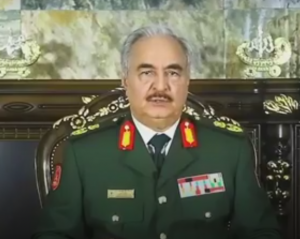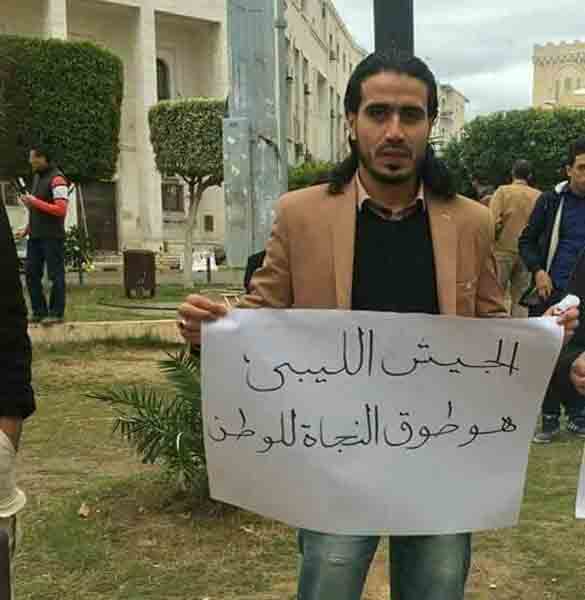By Libya Herald reporters.

Benghazi/Tunis, 17 December 2017:
The head of the Libyan National Army (LNA), Field Marshal Khalifa Hafter has said that it no longer accepts the Skhirat agreement or any institutions emanating from it, including the Presidency Council (PC) and the State Council. In a TV broadcast today to mark the second anniversary of the signing of the Libyan Political Agreement (LPA) in Skhirat on 17 December 2015, he said it had now expired and that they were no longer legitimate.
He was referring to the fact that the agreement itself says that it would last for two years. The international community, however, has rejected Hafter’s interpretation, saying that the agreement has not yet been approved by the House of Representatives and, until it is, the two-year clock has not started ticking.
In today’s statement, Hafter claimed that his army was now the only body that had any legitimacy. It had tried to achieve solution by working with the international community, but the LPA and all the various other dialogue processes that had taken place in the past three years had turned out to be just “ink on papaper, he said .
The patience of the Libyan people had run out, he declared in a stark challenge to the UN and the various major powers that still support the LPA and the PC. The army, he said, would no longer allow itself to be dictated to by the international community or the UN. Its only master was the Libyan people, speaking through their elected representatives.
“We declare our categorical rejection of the submission of the Libyan National Army to any party whatever its source of legitimacy unless it is elected by the Libyan people.”
Despite the explicit support for an elected authority, there are suggestions that Hafter also now views that House of Representatives as expired. Its term of office was originally supposed to end on 21 October 2015, but it extended itself indefinitely. Its mandate was then incorporated into the LPA, and its legitimacy is supposedly governed by it.
Hafter’s bombshell was expected. The LNA has for weeks being indicating that it considered 17 December as a watershed date and that if no HoR-approved government were operating by then, it would move to save Libya.
In a related and potentially significant move, the acting interior minister in the interim government in Beida, Colonel Younis Belgassem, has issued orders to secure election centres and local offices of the High National Elections Commission (HNEC) from attacks. The order is said to have come not from the Thinni government but from Hafter.
Hafter has said that he approves elections, although last week he was quoted by a member of the HoR saying that HNEC had to move from Tripoli and its “pro-Muslim Brotherhood” commissioners be replaced.










